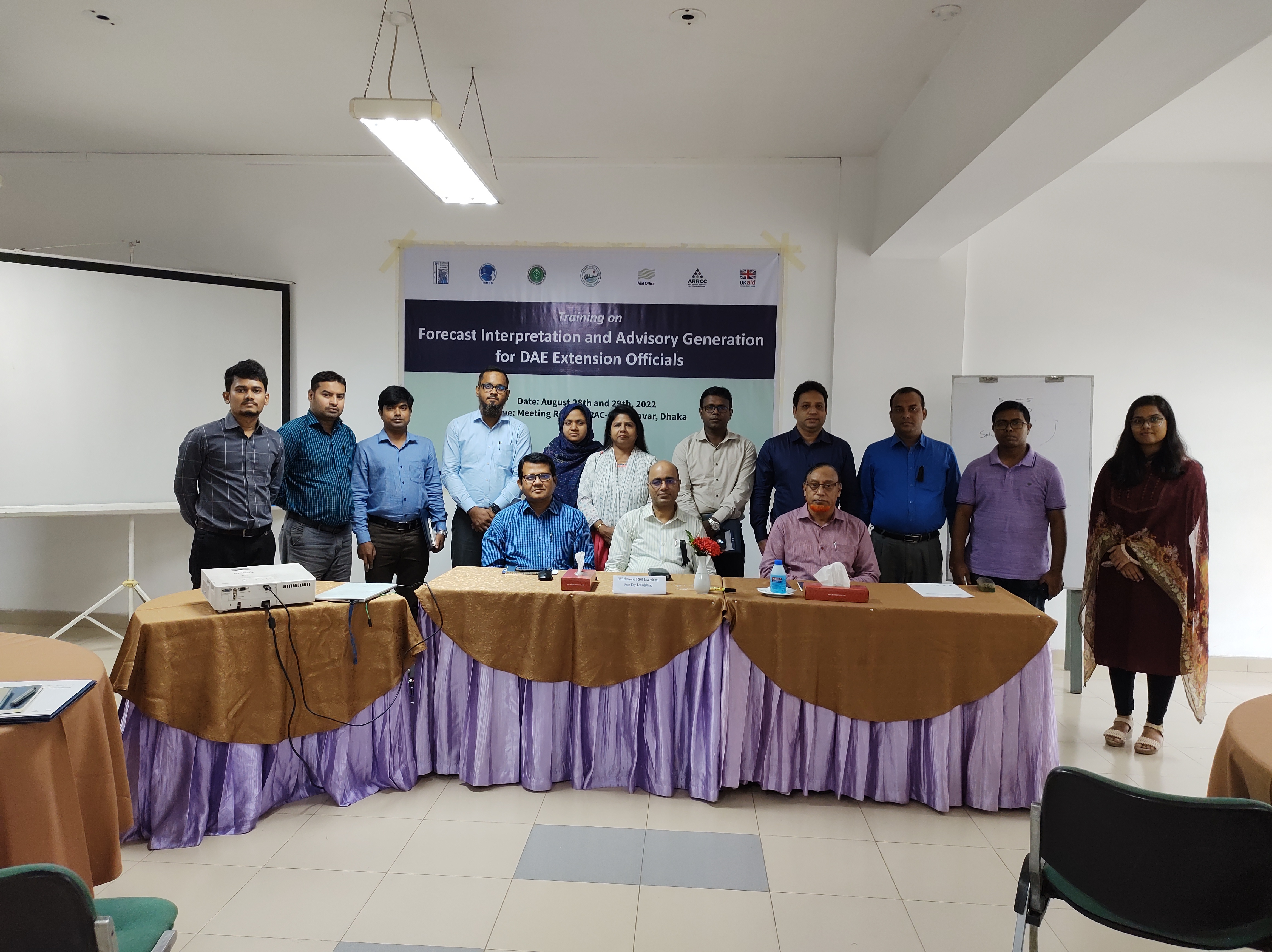September 2, 2022
A two-day residential training program ‘Forecast Interpretation and Advisory Generation for Extension Officials’ was held earlier this week in Dhaka, Bangladesh. The training aimed at developing the capacities of the Department of Agricultural Extension (DAE) officials as well as orienting them on the agromet generation process at the local level using various forecast products.
Extension officials from Rajshahi, Chapai Nawabganj, Satkhira and Barisal regions of Bangladesh took part in the training program. During the opening session, scientists from Bangladesh Rice Research Institute (BRRI), Meteorologists from Bangladesh Meteorological Department (BMD) and technical experts from RIMES held sessions on fundamentals of weather forecast, crop-weather relationship, influence of weather on pests and disease outbreaks, application of seasonal forecasts in strategic decision-making as well as accessing forecast products.
On the following day, the participants were requested to prepare their respective local level agromet advisories based on the available forecast products which helped them to better understand the advisory generation process. At the session, the project director of Bangladesh Agrometeorological Information System Development Project (AMISDP) explained the mechanisms of the current agromet advisory system in Bangladesh.
One of the training participants, Umme Salma, District Training Officer of Rajshahi said that this training program was a great initiative to explore the operational agromet services in Bangladesh. She is now confident about preparing more localized and customized agromet advisories rather than depending on previous district level advisories. She also hoped that similar capacity building programs are organized in future so that more extension officials will be able to interpret the forecast products and generate localized advisories.
The training was organized as part of the Asia Regional Resilience to a Changing Climate (ARRCC) program implemented through support from the Foreign, Commonwealth & Development Office in collaboration with BMD and UK Met Office. The ARRCC program is being implemented in various countries of South Asia including Bangladesh with an aim to build climate and environmental resilience by improving the application and access to weather and climate services at the regional and national level. In addition, the program is supporting development of new technologies and innovative approaches to help vulnerable communities use weather warnings and forecasts to better prepare for climate-related shocks.
